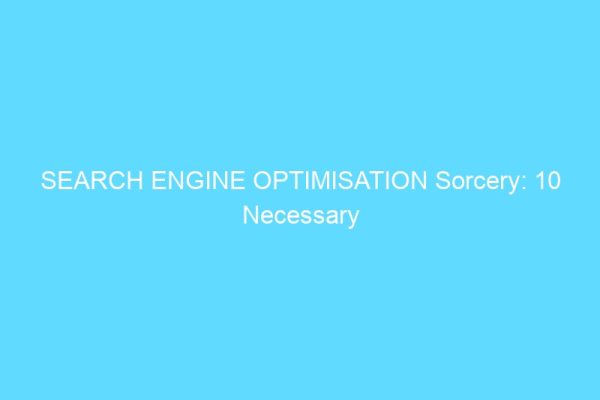
Why Filtered Water is Better For You
The Benefits of Filtered Water Over Tap Water
Water is essential for life, but not all water is created equal. While tap water is widely available and regulated for safety, it may still contain impurities that affect its taste, smell, and overall quality. Filtered water, on the other hand, goes through an additional purification process to remove contaminants, making it a healthier and more appealing choice. This article explores the key benefits of filtered water over tap water, including improved taste, health advantages, environmental benefits, and cost savings.
1. Improved Taste and Odor
One of the most noticeable differences between filtered and tap water is the taste. Many people find tap water to have a chlorine-like or metallic flavor due to the presence of disinfectants and minerals.
Why Does Tap Water Taste Bad?
- Chlorine and Chloramine – Municipal water supplies use chlorine or chloramine to kill bacteria. While effective, these chemicals can leave an unpleasant taste and smell.
- Heavy Metals – Tap water may contain trace amounts of lead, iron, or copper from aging pipes, affecting its taste.
- Sediments and Organic Matter – Small particles from soil, algae, or bacteria can contribute to an off-putting flavor.
How Filtration Improves Taste
- Activated Carbon Filters – Remove chlorine, chloramine, and organic compounds that cause bad taste and odors.
- Reverse Osmosis Systems – Purify water by removing dissolved solids, resulting in a cleaner, fresher taste.
- Ion Exchange Filters – Reduce heavy metal content, eliminating metallic flavors.
2. Removal of Contaminants
Even though tap water is treated for safety, it can still contain harmful contaminants. Some pollutants may come from natural sources, while others enter the water supply through industrial and agricultural activities.
Common Contaminants in Tap Water
- Lead – Old plumbing systems can leach lead into drinking water, posing serious health risks.
- Pesticides and Herbicides – Agricultural runoff can introduce harmful chemicals into the water supply.
- Microplastics – Tiny plastic particles have been detected in tap water, raising concerns about long-term health effects.
- Pharmaceutical Residues – Traces of medications, including antibiotics and hormones, have been found in municipal water supplies.
How Filtration Helps
- Carbon Filters – Remove pesticides, herbicides, and chlorine byproducts.
- Reverse Osmosis – Eliminates heavy metals, bacteria, viruses, and pharmaceutical residues.
- UV Purification – Kills bacteria and viruses without adding chemicals to the water.
3. Health Benefits
Drinking clean, filtered water can have a positive impact on overall health. While tap water is generally safe, filtering it further removes any lingering impurities that may affect well-being.
Health Risks of Unfiltered Tap Water
- Digestive Issues – Bacteria, parasites, and chlorine byproducts can cause stomach problems.
- Long-Term Health Concerns – Heavy metals and chemical contaminants may contribute to serious conditions such as kidney disease, cancer, and neurological disorders.
- Hormonal Disruptions – Some chemicals in tap water mimic hormones, potentially affecting endocrine function.
Health Benefits of Filtered Water
- Better Hydration – Clean water is more palatable, encouraging regular hydration.
- Stronger Immune System – Removing contaminants reduces the risk of waterborne illnesses.
- Healthier Skin and Hair – Fewer chemicals in drinking water can improve skin clarity and hair health.
4. Environmental Benefits
Choosing filtered water over bottled water significantly reduces environmental impact. Many people turn to bottled water as an alternative to tap water, but this contributes to plastic waste and pollution.
Problems with Bottled Water
- Plastic Waste – Millions of plastic bottles end up in landfills and oceans every year.
- High Carbon Footprint – Manufacturing and transporting bottled water require significant energy.
- Resource Depletion – Extracting groundwater for bottled water can strain local water supplies.
Why Filtered Water is More Sustainable
- Reduces Plastic Use – Filtering tap water eliminates the need for single-use plastic bottles.
- Lower Energy Consumption – Home filtration systems use less energy compared to bottled water production.
- Supports Local Water Resources – Using tap water responsibly helps maintain water availability for communities.
5. Cost Savings
While buying bottled water may seem convenient, it is far more expensive in the long run compared to using a home filtration system.
Cost Comparison: Bottled Water vs. Filtered Water
- Bottled Water – The average cost of bottled water is $1 to $3 per bottle, which adds up quickly.
- Home Filtration System – A high-quality water filter costs between $50 and $300 initially, with replacement filters costing $20 to $100 per year.
By switching to filtered water, households can save hundreds or even thousands of dollars annually while enjoying cleaner, healthier water.
6. Convenience and Accessibility
Having a reliable filtration system at home ensures access to clean drinking water at all times. Unlike bottled water, which requires frequent purchases and storage space, filtered water is readily available with the turn of a tap.
Advantages of Home Water Filtration Systems
- Instant Access – No need to buy, transport, or store bottled water.
- Less Maintenance – Most filters require minimal upkeep and last for months.
- Customizable Options – Different filtration methods cater to specific water quality concerns.
7. Protection Against Water Quality Issues
In times of crisis, such as natural disasters or water contamination incidents, filtered water provides an extra layer of protection. Boil-water advisories and municipal treatment failures can make tap water unsafe to drink, but having a reliable filtration system ensures continued access to clean water.
Examples of Water Quality Concerns
- Flint Water Crisis (USA) – Lead contamination affected thousands of residents.
- Agricultural Runoff in Rural Areas – High nitrate levels can pose health risks.
- Hurricane and Flooding Events – Can introduce bacteria and pollutants into water supplies.
By using a home filtration system, families can safeguard their health against unexpected water quality issues.
Filtered water offers numerous advantages over tap water, from improved taste and health benefits to environmental sustainability and cost savings. While municipal water treatment ensures basic safety, additional filtration removes contaminants that may still be present. Investing in a high-quality water filter provides peace of mind, better hydration, and long-term benefits for both individuals and the planet.
By making the switch to filtered water, you can enjoy cleaner, safer, and better-tasting water while reducing waste and saving money. Whether for home or office use, filtered water is a smart choice for a healthier and more sustainable lifestyle.











